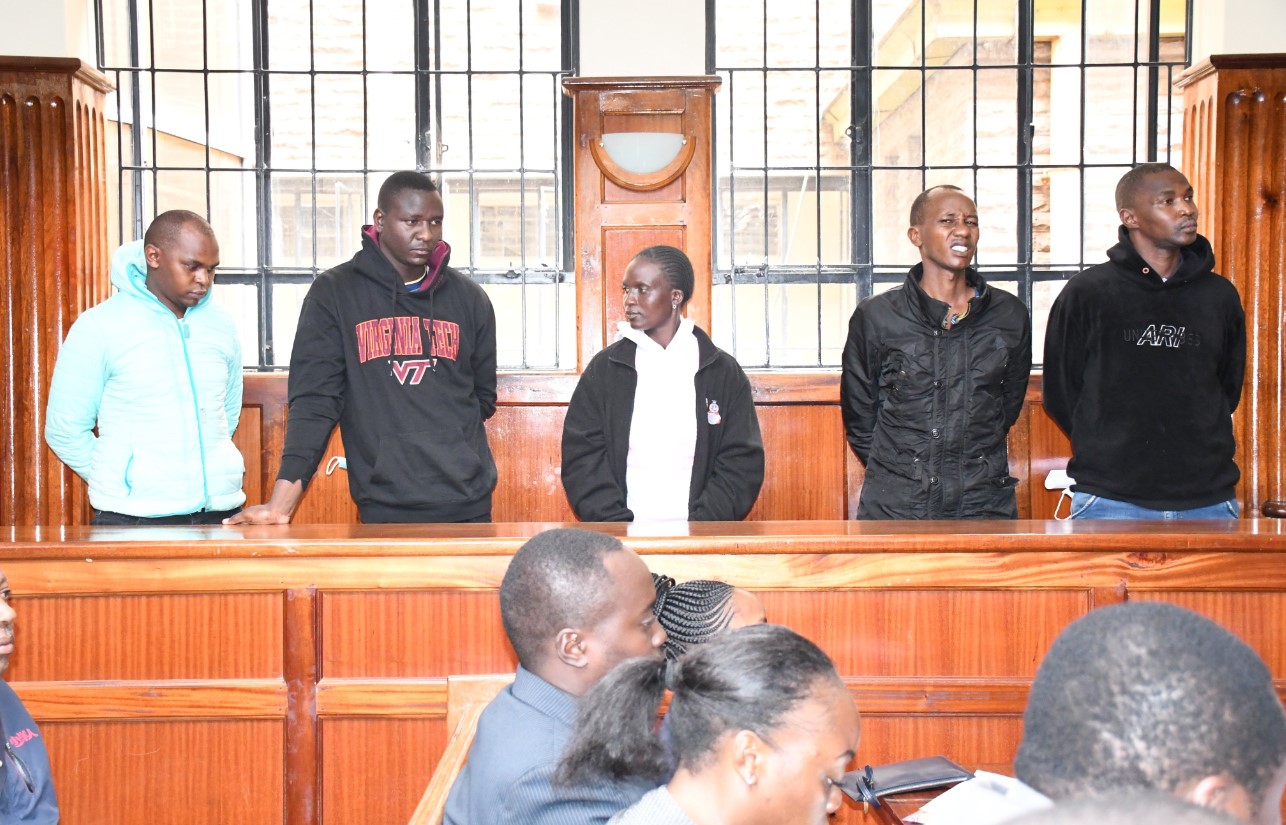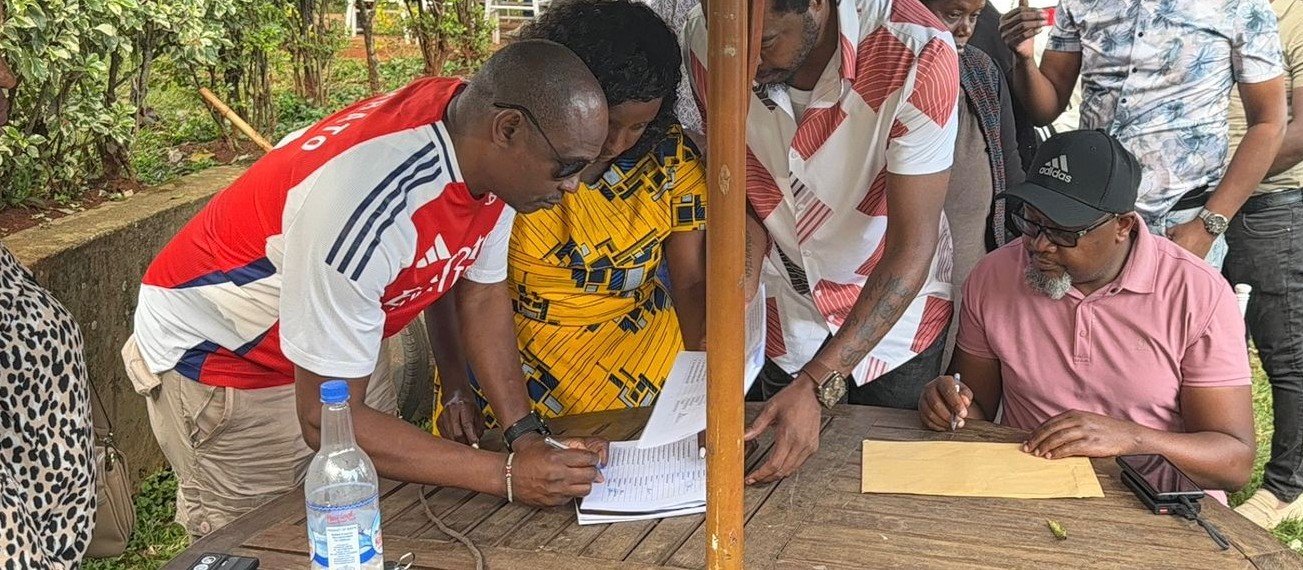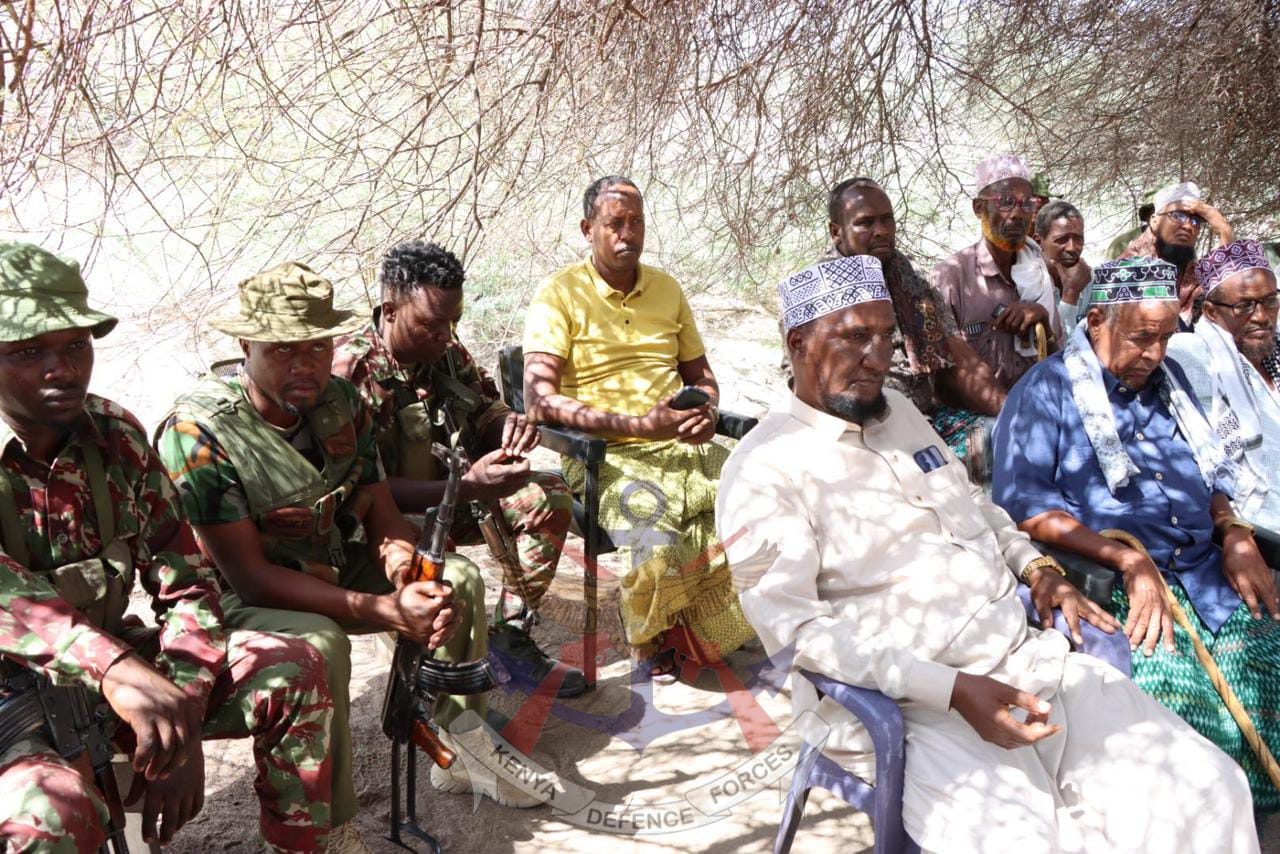The night 13 suspects 'vanished' from Gigiri Police Station

Among the escapees was Collins Jumaisi Khalusha, who had been detained for over a month after being linked to the discovery of mutilated bodies at the Kware dump site.
It was an ordinary night at Gigiri Police Station on August 19, 2024, with 17 prisoners locked up behind bars.
However, by dawn, the station turned into a crime scene where 13 suspects, including a man linked to horrible murders, had 'mysteriously' escaped.
More To Read
It all began with a duty officer who, after a long night, fell asleep in one of the offices. He later told investigators that he briefly woke up when he heard a vehicle outside the station but quickly drifted back to sleep.
At around 3 a.m., his coworker at the report office checked on him, noting that their supervisor had stopped by, but nothing seemed unusual.
The keys to the cells were still in his possession, he claimed.
The real shock came at 5:30 am when the canteen staff arrived at the cells, only to find them nearly empty.
Only four of the 17 prisoners remained. The 12 Eritreans who disappeared alongside Khalusha are thought to have bought their freedom.
Among the escapees was Collins Jumaisi Khalusha, who had been detained for over a month after being linked to the discovery of mutilated bodies at the Kware dump site.
His escape came as a shock, with many Kenyans asking how the suspects escaped the police station with no break-in.
A preliminary report handed over to police chiefs at Jogoo House revealed disturbing details.
The investigation quickly focused on two officers—a senior and a junior—who are now the prime suspects in the incident.
Investigators are exploring two possibilities: either the keys were taken from the sleeping officer without his knowledge, or the two officers had a duplicate set of keys.
On the night of the escape, security at the station should have been tight. Two officers were stationed at the report office, while another two were deployed to guard the station.
Overseeing it all was a senior officer from Spring Valley, who was assigned to supervise the night's activities at multiple stations, including Gigiri.
This officer, known as the duty officer, was expected to make rounds, checking the stations under his watch and ensuring everything was in order.
At around midnight, the duty officer arrived at Gigiri Police Station. He inquired about the number of suspects in the cells but did not personally inspect them.
He relied on the information provided by the officer on duty, who mentioned the numbers and assured him that all was well. This lack of thoroughness would prove costly.
The station seemed calm when the Nairobi Area control room called at 3 am for the routine check-in. The station boss was contacted using the police pocket phone, and nothing strange was reported.
This routine call, known as the morning call-up, is a standard procedure where the controller at police headquarters contacts station commanders across Nairobi to inquire if any major incidents have occurred.
The officer who fell asleep later admitted he could not explain how the suspects managed to escape, despite having the keys to the cells.
Investigators suspect that either someone else at the station may have had a duplicate key or that the officer might have been dishonest.
The second officer at the report office claimed that while his colleague slept, he was vigilant and did not see anyone leave the cells.
Police procedures dictate that when a suspect arrives at a station, the first step is to log their details into the Occurrence Book (OB).
This entry includes the time of arrival and the nature of the offence. Following this, the suspect undergoes a body search and is asked to surrender all valuables, such as mobile phones, cash, and belts, which are recorded for safekeeping.
The suspect is then placed in a cell, and their details are entered into the station's cell register.
This register is crucial for ordering food for the suspects and tracking their presence in the cells.
It is also used by the station commander (OCS) for head counts and must be updated if a suspect is released, with the release recorded in the OB.
The report office area is guarded 24/7 by armed officers, making unauthorised exits from the cells highly unlikely without OCS clearance.
The officers on duty that night were arrested on August 20, 2024, and taken to court, where they were released on a Sh200,000 bond on Thursday.
State prosecutor James Gachoka petitioned Nairobi Magistrate Martha Nanzushi to detain the officers for 14 days to allow time for further investigations.
Among the evidence being examined are their mobile phones, which have been handed over to the cybercrime unit at the DCI headquarters for forensic analysis.
Acting Inspector General of Police Gilbert Masengeli confirmed that eight officers, including the Westlands sub-county police commander and the Gigiri station commander, had been interdicted to pave the way for a thorough investigation.
Top Stories Today











































